Institute for European Studies
Resurrecting the Jew: Nationalism, Philosemitism, and Poland's Jewish Revival
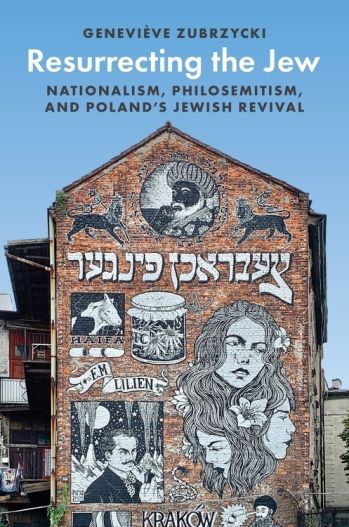
November 15, 2022
1:00 pm
Uris Hall G08
Since the early 2000s, Poland has experienced a remarkable Jewish revival, largely driven by non-Jewish Poles with a passionate new interest in all things Jewish. Klezmer music, Jewish-style restaurants, kosher vodka, and festivals of Jewish culture have become popular, while new museums, memorials, Jewish studies programs, and Holocaust research centers reflect soul-searching about Polish-Jewish relations before, during, and after the Holocaust. In Resurrecting the Jew, Geneviève Zubrzycki examines this revival and asks what it means to try to bring Jewish culture back to life in a country where 3 million Jews were murdered and where only about 10,000 Jews now live.
Drawing on a decade of participant-observation in Jewish and Jewish-related organizations in Poland, a Birthright trip to Israel with young Polish Jews, and more than a hundred interviews with Jewish and non-Jewish Poles engaged in the Jewish revival, Resurrecting the Jew presents an in-depth look at Jewish life in Poland today. The book shows how the revival has been spurred by progressive Poles who want to break the association between Polishness and Catholicism, promote the idea of a multicultural Poland, and resist the Far Right government. The book also raises urgent questions, relevant far beyond Poland, about the limits of performative solidarity and empathetic forms of cultural appropriation.
Speaker
Geneviève Zubrzycki, Professor of Sociology at the University of Michigan
Register for the session here.
Additional Information
Program
Institute for European Studies
Italy’s Government Is in Turmoil. Here’s How It Got There – and What’s Next
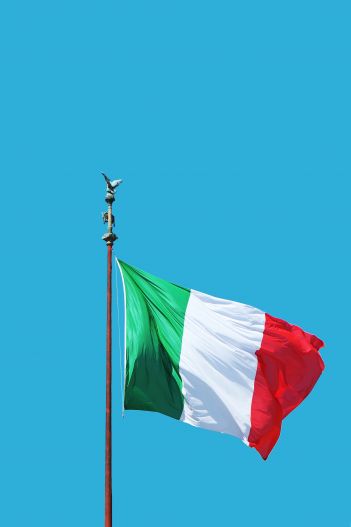
Christopher Way, IES/PACS
"Mario Draghi was such a trusted pair of hands across Europe," says Christopher Way, associate professor of government. "He was so respected for his competence that it's a loss no matter who replaces him."
Additional Information
How Populism Deals with Complexity
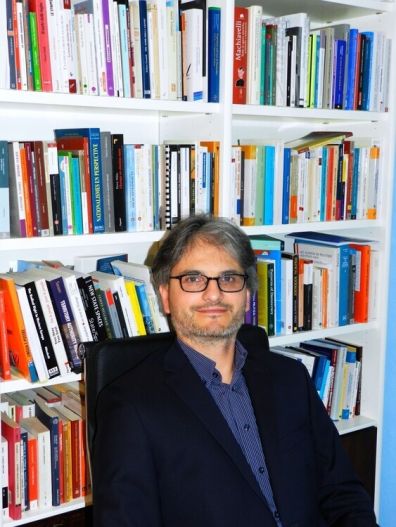
September 6, 2022
4:30 pm
Uris Hall, G08
There is a strong tendency in social and political sciences to simplify the academic use of the concept of populism. This is what populists do when they dichotomise reality into friends and enemies. The goal of this talk is to highlight and discuss why scholars have to develop an adaptive and multifaceted perspective, and how changing realities across Europe and the United States, including the experience of Covid-19 pandemic, might contribute to strengthen this perspective.
Speaker
Oscar Mazzoleni, Professor of Political Science and Political Sociology, University of Lausanne
Register for the session here.
Presented by the Institute for European Studies
Additional Information
Program
Institute for European Studies
Einaudi Center for International Studies
Seeking Leverage Over Europe, Putin Says Russian Gas Flow Will Resume

Eswar Prasad, SAP
Prasad, an economist at Cornell said “Keeping a low flow through Nord Stream could strengthen Russia’s position and even weaken Europe’s resolve if the war drags on. Maintaining Europe’s energy dependency on Russia and stoking uncertainty about natural gas supplies, are among the reasons Mr. Putin would want to keep Nord Stream online.”
Additional Information
"Final Stage of Russian Decline"

Bykov Talks with New Yorker
Visiting critic Dmitry Bykov discusses Russia—and Russians—under Putinism on the New Yorker Radio Hour.
Additional Information
ISSI 2022
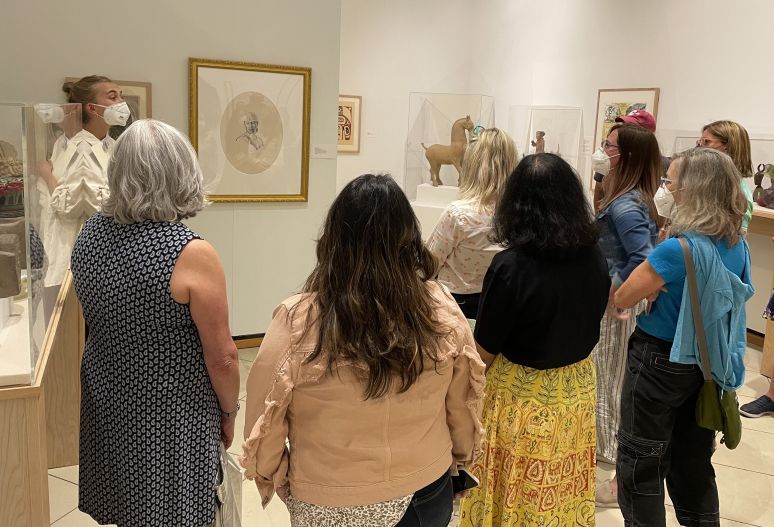
Institute for K–12 Teachers Highlights Global Inequalities
Einaudi's regional programs hosted more than 30 teachers from across central New York for professional development on the Cornell campus.
Additional Information
The Coming Enlightenment: The University Sector and Reparatory Justice for Slavery and Colonialism
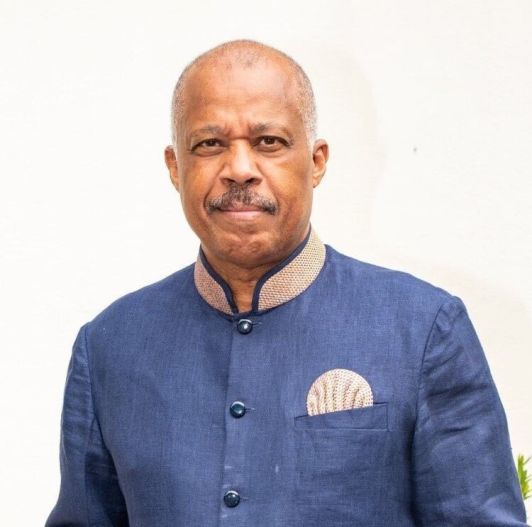
September 16, 2022
4:30 pm
Rhodes-Rawlings
Postcolonial discourse has called into question the historic Western Enlightenment by demonstrating its links to violent colonialism, chattel slavery, Indigenous genocide, and persistent institutional and cultural racism.
Sir Hilary Beckles suggests that the growing global reparatory justice movement—particularly as it emanates from the higher education sector—may present the best potential for an authentic 21st-century Enlightenment. Universities are now deeply researching their role, functions, and legacies within the Atlantic slave complex and exploring where these discursive discoveries, as crimes against humanity, will lead—back into the future or forward against the past.
Join the lecture live in the Rhodes-Rawlings Auditorium in Klarman Hall! In-person attendees have the chance to enchange ideas with Beckles during a Q&A session following the lecture. Or join the lecture virtually by registering at eCornell.
About the Speaker
Sir Hilary Beckles, eighth vice chancellor of the University of the West Indies, is a distinguished academic, international thought leader, United Nations committee official, and global public activist in the field of social justice and minority empowerment.
He received his higher education in the United Kingdom and is professor of economic history. He has lectured extensively in Europe, the Americas, Africa, and Asia. He has published over 100 peer reviewed essays in scholarly journals and over 13 books on subjects ranging from Atlantic and Caribbean History, to gender relations in the Caribbean, sport development, and popular culture.
Beckles is president of Universities Caribbean, chair of the Caribbean Examinations Council, chair of the CARICOM Reparations Commission, and advisor on sustainable development to former United Nations secretary-general Ban Ki-moon. He was knighted by the government of Barbados. He has received numerous honorary doctorates from around the world and recently received the Martin Luther King Jr. Peace and Freedom Award.
Hosts and Sponsors
Beckles' lecture and campus visit are part of the Mario Einaudi Center for International Studies' Distinguished Speaker series and ongoing work on Inequalities, Identities, and Justice. The lecture is the closing event in the 60th anniversary Public Issues Forum series of the Einaudi Center's Latin American and Caribbean Studies Program.
The event is funded in part by the A.D. White Professor-At-Large Program, the Migrations initiative, and a LACS Undergraduate International Studies and Foreign Language (UISFL) grant from the U.S. Department of Education.
Additional Information
Program
Einaudi Center for International Studies
Latin American and Caribbean Studies
Institute for European Studies
International Fair 2022

August 31, 2022
11:00 am
Uris Hall, Terrace
The annual International Fair showcases Cornell's global opportunities for undergraduate and graduate students. Explore the fair and find out about international majors and minors, language study, study abroad, funding opportunities, global internships, and more.
The International Fair is sponsored by the Mario Einaudi Center for International Studies, the Office of Global Learning (both part of Global Cornell), and Cornell's Language Resource Center.
Additional Information
Program
Einaudi Center for International Studies
Reppy Institute for Peace and Conflict Studies
East Asia Program
Southeast Asia Program
Latin American and Caribbean Studies
Institute for African Development
Institute for European Studies
South Asia Program
The Revolution will be Livestreamed: Technology, Communication, and Terrorist Violence

September 22, 2022
11:25 am
Uris hall, G08
Dr. Levi West will articulate a framework for understanding the manner in which innovative forms of violence, narrative and communicative dynamics, and emergent information and communications technologies can be integrated by terrorists and other violent non-state actors to achieve strategic effect.
The framework will be applied to a contemporary case study, namely the Islamic State, while additionally making use of historical case studies including transatlantic anarchist terrorism in the late 1800s and early 1900s, and political violence undertaken in support of the liberation of Palestine in the aftermath of the 1967 War. The framework seeks to provide explanatory insight into the means by which asymmetrically weak actors are able to cause disproportionately consequential strategic effect on their adversaries. The framework can assist with understanding the non-kinetic purposes and impacts of terrorist violence, while also providing a degree of insight into the strategic utility of highly calibrated, choreographed, targeted violence. In identifying a consistent strategic calculus that underpins terrorist violence across temporal and ideological contexts, the framework also suggests that it is possible to understand the enduring nature and strategic logic to terrorist violence, despite its frequently changing character.
About the Speaker
Dr. Levi West is the Director of Terrorism Studies at the Australian Graduate School of Policing and Security at Charles Sturt University in Canberra, and the Executive Director of Leviathan Analysis, a bespoke consulting firm that provides research, advisory, and professional development services to the law enforcement and national security sectors.
Moderator
Paul Lushenko is a U.S. Army Lieutenant Colonel and a PhD student in International Relations at Cornell University.
***
Presented by the Reppy Institute for Peace and Conflict Studies. Co-sponsored by the Department of Government and the Gender and Security Sector Lab.
Additional Information
Program
Einaudi Center for International Studies
Reppy Institute for Peace and Conflict Studies
Institute for African Development
Institute for European Studies
Ukraine, Russia, and the Long Shadow of Nuclear Weapons

September 1, 2022
12:15 pm
Emma Belcher, president of Ploughshares Fund, joins a national panel of experts for a vital look at the future of nuclear security policy at a time when the United States, Russia, and other nations continue to maintain enough nuclear weapons to destroy life on earth.
The Russian invasion of Ukraine emphasizes the ever-present threat of nuclear war, raising urgent questions:
Did the U.S. possession of weapons utterly fail to deter Russian aggression? Did Russia’s possession of nuclear weapons embolden it to invade Ukraine, a nation that gave up nuclear weapons at the end of the Cold War? What is the wisdom and what are the risks of continuing to maintain large numbers of nuclear weapons in a world marked by growing authoritarianism in Russia, China, and elsewhere? What are the implications of the crisis in Ukraine for the global movement to abolish nuclear weapons? Please join us for this virtual conversation. Register now!
Introduction
Peter Katzenstein, Walter S. Carpenter Jr. Professor of International Studies, Director, Reppy Institute for Peace and Conflict Studies, Cornell University
Panelists
Fiona Cunningham, Assistant Professor of Political Science, University of Pennsylvania
Mariana Budjeryn, Senior Research Associate, Belfer Center for Science and International Affairs, Harvard Kennedy School
Pavel Podvig, Senior Researcher, United Nations Institute For Disarmament Research
Moderator
Emma Belcher, President, Ploughshares Fund
***
Hosted by the Judith Reppy Institute for Peace and Conflict Studies, part of the Mario Einaudi Center for International Studies, with additional support from Einaudi's Institute for European Studies and the Institute of Politics and Global Affairs. The event is part of the Einaudi Center's Democratic Threats and Resilience research priority.
Additional Information
Program
Einaudi Center for International Studies
Reppy Institute for Peace and Conflict Studies
Institute for European Studies
